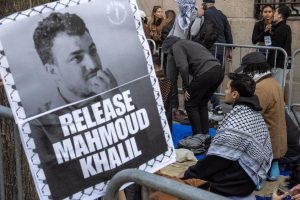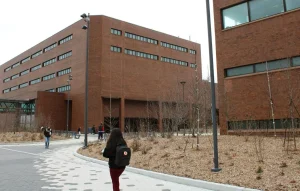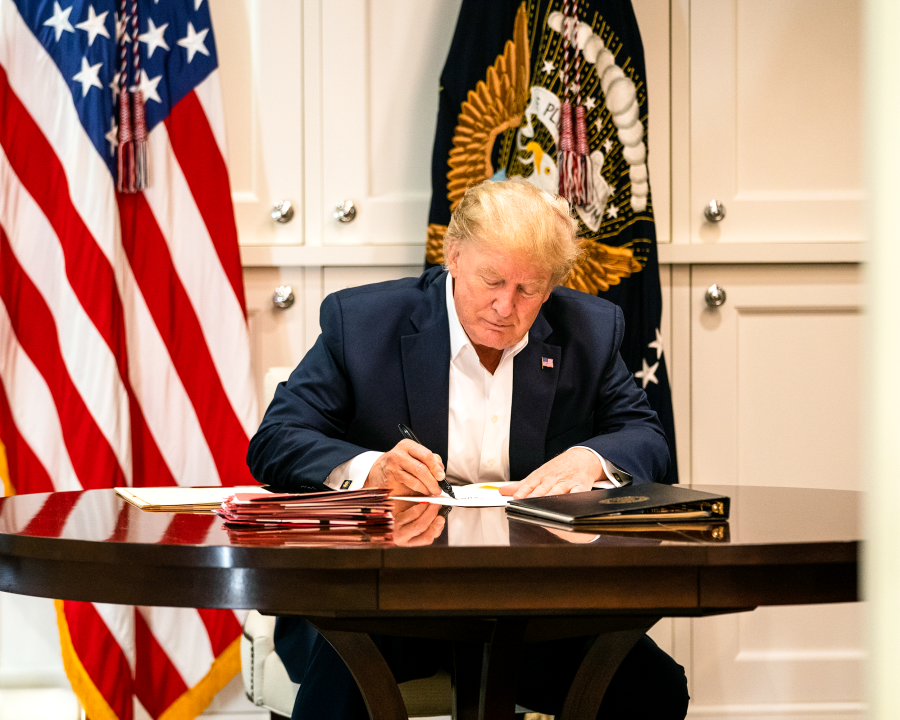President Donald Trump got straight to work after returning to the oval office, signing a flurry of executive orders that are likely to affect UMass Boston.
One order ends Diversity, Equity & Inclusion programs at the government level, according to the White House. The Trump administration referred to these programs as “illegal and immoral discrimination programs.”
“Americans deserve a government committed to serving every person with equal dignity and respect, and to expending precious taxpayer resources only on making America great,” the White House wrote in an executive order.
Trump also revoked Executive Order 11246, signed by President Lyndon B. Johnson in 1965 to prevent discriminatory practices in the government hiring process.
Trump expressed a desire “to rid America’s schools of perceived ‘wokeness‘ and ‘left-wing indoctrination,‘” according to PBS. He has discussed using federal funds as leverage to achieve this goal, saying schools that teach “critical race theory, transgender insanity, and other inappropriate racial, sexual or political content on our children” or impose any mask or vaccine mandate will “not receive a penny” from him.
UMass Boston requires full-time students to prove they received six different vaccines, including for Measles, Mumps, and Rubella and Hepatitis B, in accordance with Massachusetts law, according to University Health Services.
During his campaign, Trump announced plans to shut down the Department of Education. Once in office, he appointed Linda McMahon to run it. According to the Associated Press, the White House is preparing an executive order directing McMahon to wind down the department. “I want Linda to put herself out of a job,” Trump said.
Trump has not signed any policies modifying modifying school curricula. If he were to do so, it could put UMass Boston’s academic departments, such as gender studies and various ethnic studies, at risk.
The Trump administration also emphasized its strict stance on immigration policies. One of these changes is implementing a higher security vetting process for incoming migrants.
“To protect Americans, the United States must be vigilant during the visa-issuance process to ensure that those aliens approved for admission into the United States do not intend to harm Americans or our national interests,” the White House wrote in an executive order.
These restrictions could make the visa application process for international students looking to study at UMass Boston increasingly difficult, especially for those coming from China, Mexico, Central America or the Middle East, which the Trump administration identified as the primary focus of their new immigration policies, according to Jeelani Law, an immigration law firm with offices in nine cities including New York and Washington DC.
UMass Boston could see a decline in both international admissions and campus diversity, limiting opportunities for higher education and cultural exchange for foreigners. International students comprise 10% of the student body, according to the university.
Trump also vowed to deport immigrants who have expressed pro-Palestinian beliefs, deeming them sympathizers of terrorist organizations and a potential safety risk, according to CBC. As there have been pro-Palestinian demonstrations held at UMass Boston as recently as last semester, these protests could put some participants at risk. However, the details of such a policy are limited, and according to the Foundation for Individual Rights and Expression, it would likely be considered unconstitutional by the Supreme Court, violating the First Amendment.
Trump has also made tariffs a focal point of his economic plans. These tariffs would cause the prices of goods imported from China, Canada, Mexico and potentially other nations to rise. Although these tariffs would not directly increase tuition costs, they could make paying for other essentials more costly, such as gas for commuters’ cars.
This article appeared in print on Page 1 of Vol. LIX Issue X, published Feb. 10, 2025.





